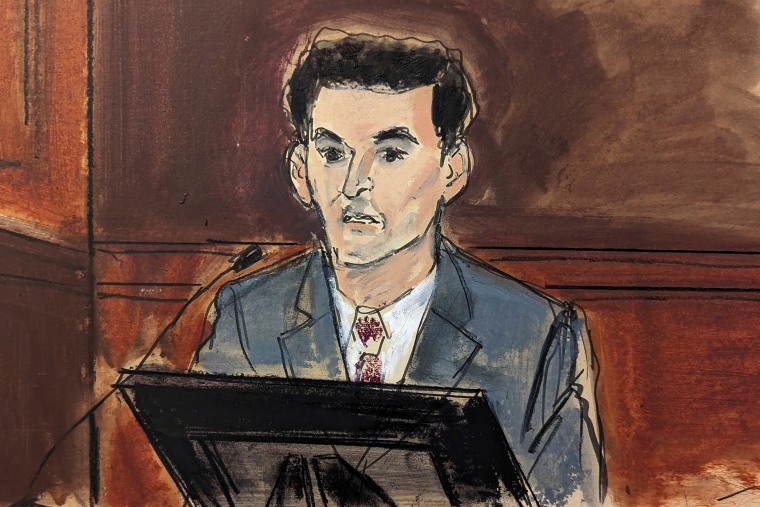Facing decades in prison on fraud and money laundering charges, FTX co-founder Sam Bankman-Fried testified in his own defense on Friday.
After his attorneys first asked him how FTX protected customers’ assets, they then asked Bankman-Fried if FTX had a risk management department.
“We sure should have,” he answered.
FTX filed for bankruptcy protection in November 2022 after customers got nervous about its health and began withdrawing their money. It soon emerged that billions of dollars in customers' assets had been transferred to Alameda Research, a cryptocurrency hedge fund that was FTX's "sister" firm.
He also testified that he borrowed money from Alameda because he owned the company, and that he saw no reason he could not borrow from its substantial profits.
FTX co-founder Gary Wang testified earlier that Bankman-Fried directed him to make the transfer because Bahamian regulators were friendly to him and seemed willing to let Bankman-Fried stay in charge of the company.
Bankman-Fried's lawyers say he was acting in good faith and trying to do right by customers.
The prosecution rested its case early Thursday morning and the defense began presenting its case shortly after noon Eastern Time. Two other defense witnesses testified before Bankman-Fried did. He then took the stand without the jury present as part of a hearing about what types of evidence would be admissible in court.

Bankman-Fried also testified that he never directed former FTX CEO Ryan Salame or former engineering director Nishad Singh to make political donations. He also said he didn't recall an incident where, according to Singh, he asked employees to find a way to make it look like FTX had more than $1 billion in annual revenue.
Court filings from Bankman-Fried’s lawyers show that he also plans to testify that he approved of the transfer of FTX assets to regulators in the Bahamas, where FTX was based, because he believed they would act in customers’ best interests.
It's often risky for defendants to testify in their defense in high-profile cases, but Bankman-Fried may not have much to lose.
Earlier in the trial, Wang, Singh, and Alameda Research CEO Caroline Ellison, who also dated Bankman-Fried, all testified for the prosecution. They said that they committed crimes alongside Bankman-Fried, including misleading investors about the financial state of FTX and its sister hedge fund, Alameda Research, and stealing $10 billion from FTX customers and giving it to Alameda.
Wang, Ellison and Singh have all pleaded guilty to criminal charges and are cooperating with the federal government in the hope they will get lighter sentences.
Bankman-Fried is charged with wire fraud, securities fraud and money laundering that defrauded FTX's customers and Alameda's lenders.
His lawyers argue that Bankman-Fried did not defraud anyone, that startups like FTX are complex and often fail, and that the government is looking for someone to blame for customers' losses.
Bankman-Fried is expected to finish testifying Monday, and prosecutors are expected to cross-examine him afterward.
